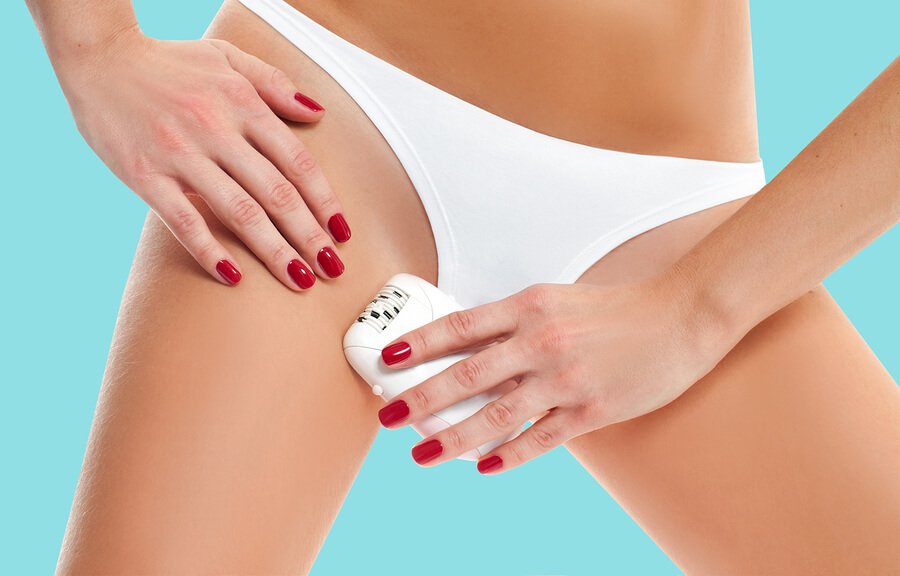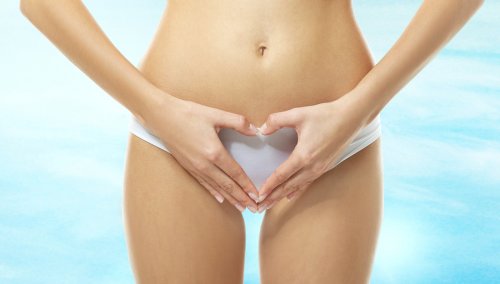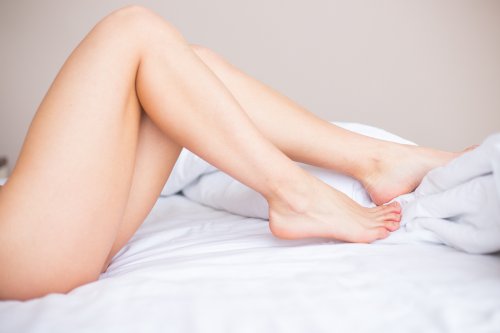Should You Remove Your Pubic Hair?

A new trend has motivated thousands of people to live free of body hair. Many of them remove the hair on their face, armpits, abdomen, back, legs, etc.
However, the extreme of removing pubic hair has also caused major controversy. Many ask themselves if they should really take this step.
Possible consequences of pubic hair removal
Before falling prey to the current trend, you should be aware of the complications that pubic hair removal can cause. It’s clear that not all skin types are alike.
However, the following are the most common issues for both men and women :
Irritation or burning of the skin
Upon removing your pubic hair, you’ll notice that the area is smoother and has an improved appearance at first. However, whether you use a razor or hot wax, our skin suffers.
Using hair removal products can cause irritation and painful burning of the delicate skin of our genital region. Going about removing your pubic hair the wrong way causes serious issues with the health of this area.
Lacerations, bacterias and ingrown hairs
Poor procedure when it comes to removing pubic hair can bring about negative consequences in the immediate future.
The inappropriate use of a razor can cause wounds to the skin and lead to infection. This is thanks to the creation of bacteria in the area due to the constant moisture and warmth around the genitals.
If we don’t know how to remove our pubic hair correctly, then we can produce cuts. We can also cause our pores to close, making healing more difficult.
When this occurs, hair no longer grows in a natural way. Rather, it grows beneath the skin, causing swelling, pain and possible infection.

Pain and itch
There are all sorts of methods out there for removing pubic hair. Whichever one you use, the hair will grow back – and when it does, it will produce itching and discomfort.
Most people who experience these sensations can’t help but scratch. However, this breaks the pores in your skin, and the contact with your dirty hands and nails can lead to infection.
Increased risk of contracting illnesses
Of course, the presence of pubic hair offers no guarantee that you won’t catch any venereal diseases. However, having it means that less of your genital region is in direct contact.
Thus, the chances of contracting a venereal disease – such as HPV – are less. Along with the trend of pubic hair removal, there has been an increase in the spread of HPV.
“Before prioritizing appearances, it’s important to take a look at the pros and cons in regards to our health”
Skin conditions and the removal of pubic hair
If you suffer from illnesses such as diabetes, psoriasis or eczema, you should talk to your doctor. He or she will indicate which pubic hair removal method is best in your case.
Having skin conditions makes hair removal more complicated, since it can have unfortunate consequences, such as pain, discomfort and even infectious wounds that can become serious.
Hair versus hygiene
Many people swear by this habit, arguing that it’s a question of personal hygiene. They allege, at the same time, that the presence of hair in the genital region produces unpleasant odors.
However, this isn’t exactly true. With or without pubic hair, personal hygiene depends on the individual. With adequate and regular washing, there should be no reason for uncomfortable or bothersome odors.

We have hair on our bodies for a reason
Every component of our body has a purpose and a reason for existing. Each part is there to carry out specific functions. Pubic hair, of course, is no exception. In fact, it fulfills various functions, including the following:
- Serves as a sort of barrier against outside bacterias and viruses that can produce infection or illness. In other words, pubic hair is like a protective wall around the genital area.
- Allows the female genital area to maintain a comfortable temperature that is adequate for sexual intercourse.
- Pubic hair retains the personal aroma created by pheromones. These are sexual signals that our bodies transmit to stimulate our partner’s libido.
- Prevents irritation in the genital region. It helps to prevent reddening and discomfort caused by rubbing during intercourse or the use of garments that are too tight or too loose.
Perhaps you’ve already gotten used to removing your pubic hair, be it through shaving, waxing, or another method. However, you should never get used to having to put up with discomfort or other negative consequences that this habit implies.
It’s important that you know the advantages and disadvantages so you can make the best decision for your health.
Finally, be sure to consult with your doctor to talk more in depth if you have any questions. With your medical history on hand, he or she will inform you whether or not removing pubic hair is a good option for you.